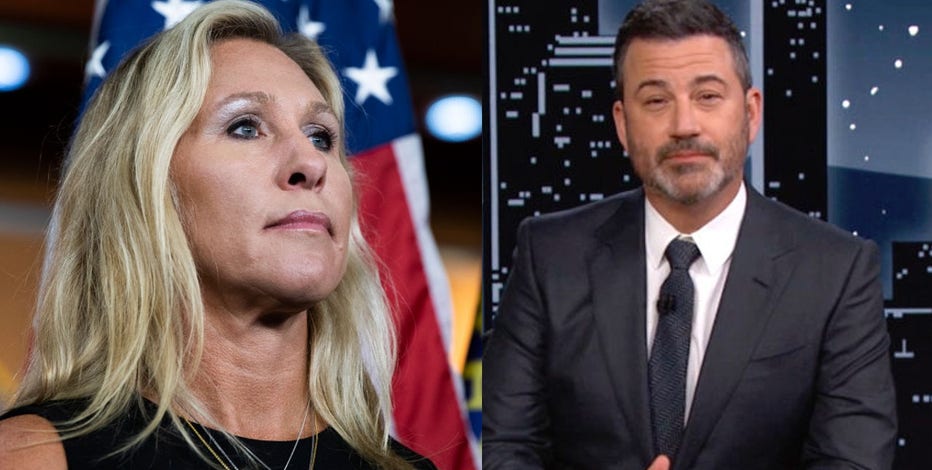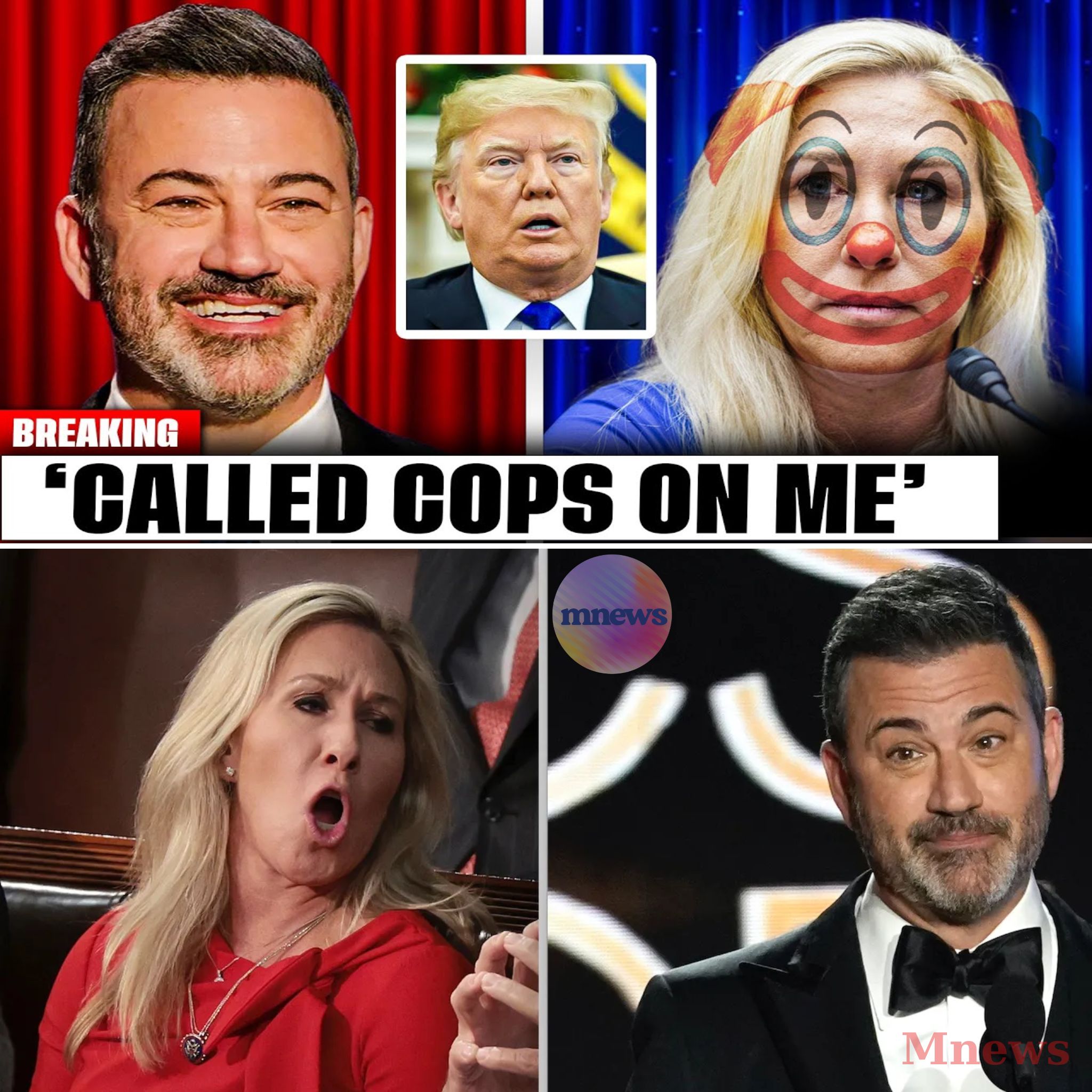In a shocking display of political theater, Representative Marjorie Taylor Greene has found herself at the center of a heated feud with late-night host Jimmy Kimmel, igniting a firestorm that has drawn attention to the intersection of comedy, free speech, and political accountability. The drama unfolded after Kimmel made a quip during his monologue about Greene, referencing her controversial past and her recent comments, including her infamous “Gaspacho Police” slip. Greene, known for her incendiary rhetoric and conspiracy theories, took to Twitter to challenge Kimmel, suggesting they engage in a discussion about her book and what it means to “save America.”

However, the situation escalated quickly when Greene claimed Kimmel’s joke constituted a threat, leading her to file a report with the Capitol Police. This move has sparked widespread debate about the boundaries of humor and the responsibilities of public figures. Kimmel, responding to Greene’s accusations, tweeted back, “Officer, I’d like to report a joke,” highlighting the absurdity of her complaint and the broader implications of policing comedy.
The fallout from this exchange reveals deeper issues within American political discourse. Greene’s actions serve as a case study in the performative outrage that has become a hallmark of contemporary politics. Her tendency to amplify her grievances for political gain raises questions about the sincerity of her claims and the validity of her victimhood narrative. Critics argue that her reliance on law enforcement to address a joke reflects a troubling hypocrisy, given her previous calls to defund the police and her role in inciting the January 6 insurrection.
Kimmel’s response to Greene has not only entertained audiences but has also provided a critical commentary on the nature of free speech. By framing her complaint as an infringement on comedic expression, he underscores the importance of distinguishing between humor and genuine threats. This distinction is vital in a democratic society where satire has long served as a tool for accountability and critique of those in power.
As the feud continues to unfold, it raises essential questions about the power dynamics at play in political discourse. Greene’s insistence that a joke can be a crime challenges the foundational principles of free speech, suggesting that those in power should be insulated from criticism. This perspective poses a direct threat to the democratic ideals that allow for robust debate and dissent.

In a broader context, this incident reflects the increasing polarization of American politics, where humor is weaponized and outrage is often prioritized over reasoned discourse. The spectacle of Greene’s response to Kimmel’s joke exemplifies how political figures can manipulate public perception to garner sympathy and distract from their own controversial actions.

Ultimately, the ongoing exchange between Greene and Kimmel serves as a reminder of the fragility of free speech in the face of political theatrics. As audiences grapple with the implications of this feud, it becomes evident that the line between comedy and threat is not only a matter of legal interpretation but also a reflection of the values and norms that govern public life. In an era where political discourse is increasingly characterized by division and hostility, the ability to laugh at our leaders may be one of the last bastions of a healthy democracy.





